At the start of the flag-raising ceremony, the only sound that broke the silence was the rhythmic clicking of the flag winching up the pole.
For nearly two minutes, that sound echoed in the ears of members of Maricopa’s American Legion, Veterans of Foreign Wars, Maricopa High School’s AFROTC and community members as they gathered Wednesday morning outside the Maricopa Community Center to commemorate National Vietnam War Veterans Day.
Fifty years after the last U.S. troops left a war-torn Vietnam for an emotionally hostile home, emotions are tempered but veterans repeated two points through the day: despite whatever aggressions and invisibility they experienced from the public over the decades, they continue to exhibit pride in their service and their country.
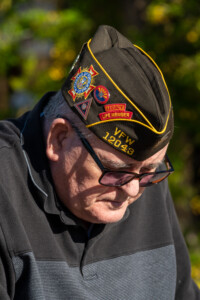
“For me, it’s a matter of conscience, as well as my commitment,” said Charles Kemp, a Navy veteran who served in Vietnam from 1968 to 1969. “I’m proud to be a member of the team that went to Vietnam.”
Thomas Kelley, a Navy veteran and commander of Maricopa’s American Legion offered some words following the flag-raising. A mixture of history, humor and latent bitterness permeated his speech, as it did among other Vietnam veterans present.
“They went to Vietnam, they did their job, they got shot at but they didn’t want to be there,” Kelley said. “They were forced to go there because they were drafted. So, they came home and they burned their uniforms. They burned their cards and they burned their (discharge papers).”
“There was some animosity also over the war but those Vietnam veterans did their job and came home,” he said.
Remembering the Vietnam war 50 years later
How does one summarize a war that spanned two decades and continues to haunt a generation?
The Vietnam War began in 1955 and U.S. involvement was almost immediate with the perceived threat of communism spreading through Southeast Asia. Deployment into the country swelled through the 1960s until March 29, 1973, when the last U.S. combat troops left Vietnam following the Paris Peace Accords.
Over the course of two decades, more than 58,000 American men and women died, and many more were physically or mentally injured in a war that wouldn’t be won. The number of Americans still missing and unaccounted for from the war is 1,581, according to the National League of Families of American Prisoners and Missing in Southeast Asia.
All of it left an indelible scar on a nation that was already grappling with massive cultural and political changes. In the end, many veterans felt discarded and lost in the shuffle.
For some, remembrance is “too little, too late”
Not all wounds have healed. Kelley, who served in Vietnam between 1967 and 1968, voiced a hint of bitterness toward the late reception of Vietnam War veterans.
“Do you know how long it’s been since we came home? Over 50 years,” Kelley said. “Now we’re celebrating the 50th anniversary of (leaving) Vietnam.”
“I know I sound upset. Well, I am upset,” he continued.
One phrase that continually emerged from veterans attending the event: too little, too late.
“There’s so many of us that are gone, that it’s kind of too little, too late,” said William Luther, a Marine veteran who served in Vietnam from 1966 to 1967. “Those of us that are left appreciate it.”
Keith McGlaughlin, a Navy veteran who enlisted in 1963, agreed.
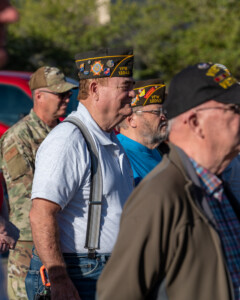
“It is too little, too late,” he said. “It took years to get the Vietnam Memorial done…That’s not right and it’s all because of public attitudes at the time.”
Veterans at the flag-raising shared their negative homecoming events, which differs strikingly from the overwhelming jubilance of veterans returning from World War II to the constant “thank yous” issued to current soldiers returning from deployments. Instead, Vietnam veterans were vilified, met with a constant animosity that only recently lifted. It left a permanent scar on many.
“It still hurts somewhat pretty good,” McGlaughlin said. “Every time I came back to shore for several years, it was immediately get out of the uniform or be spit on. Literally, I was spit on more than once.”
Luther shared similar experiences with the public attitude at the time over the war and military personnel.
“Before 1964 or 1965, I could wear my uniform and couldn’t buy a cup of coffee anywhere because I was a serviceman,” he said, indicating the practice of people buying his drinks. “When I came home (in 1967), you couldn’t wear your uniform. People would spit on you, people would call you ‘baby killer,’ people would call you all kinds of things.”
Luther understood the perception of the war at the time but felt the blame was misplaced.
“We used to say, ‘Go ahead and demonstrate against war.’ There’s no problem there,” Luther said. “But not us, it’s not our fault. We didn’t do it. We’re just doing our job.”
But even with that understanding, that pain continues in the memories of many veterans.
“The thing I remembered most was the fact that the homecoming wasn’t there,” Kemp said. “I have no regrets about it. I would do it again if my country called me.”
And while the decades have slowly eased the caustic memories and attitudes, veterans present at the flag-raising ceremony each still had the same belief.
“If I had to do it all over today, knowing what I went through, I’d do it exactly the same,” said McGlaughlin.

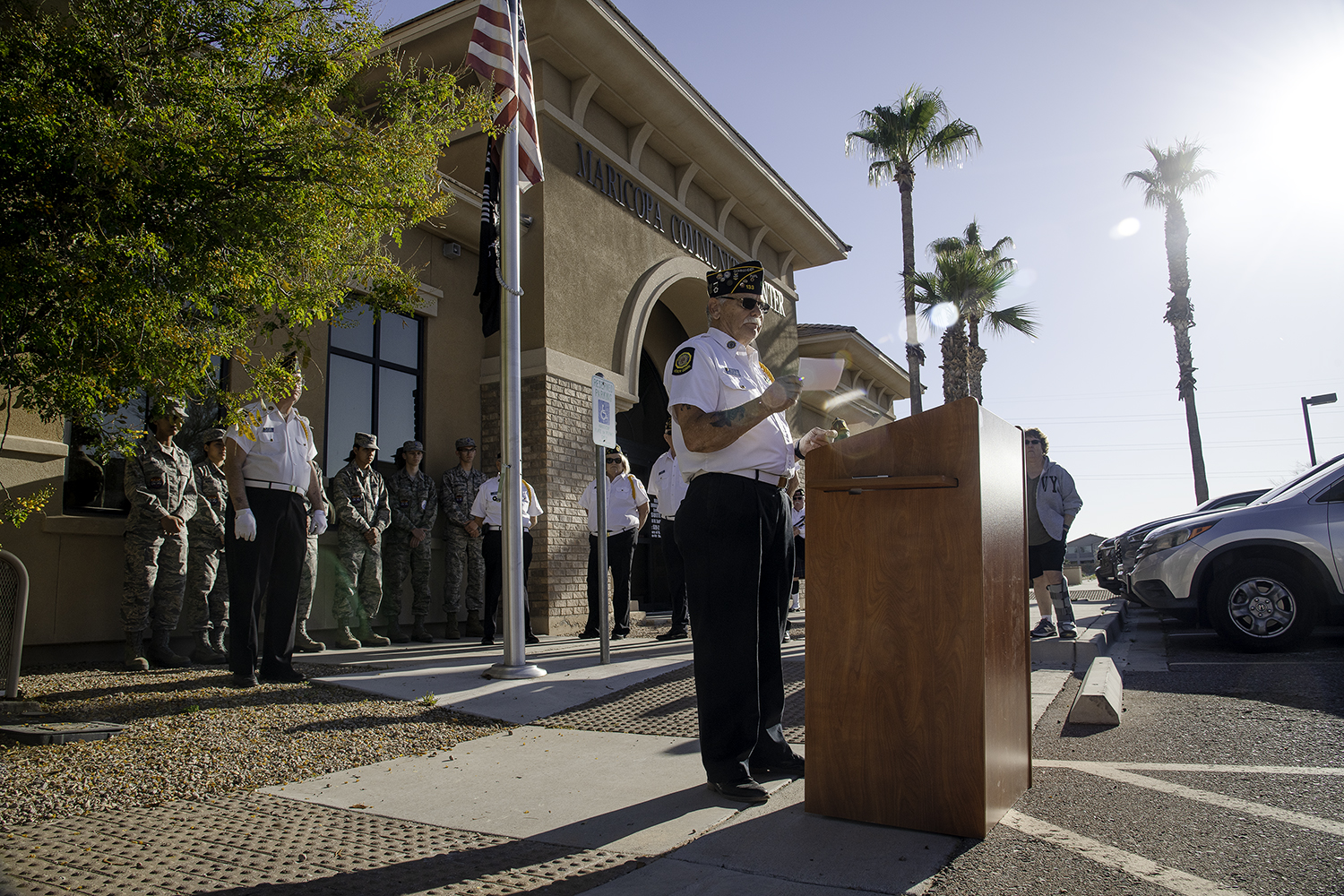
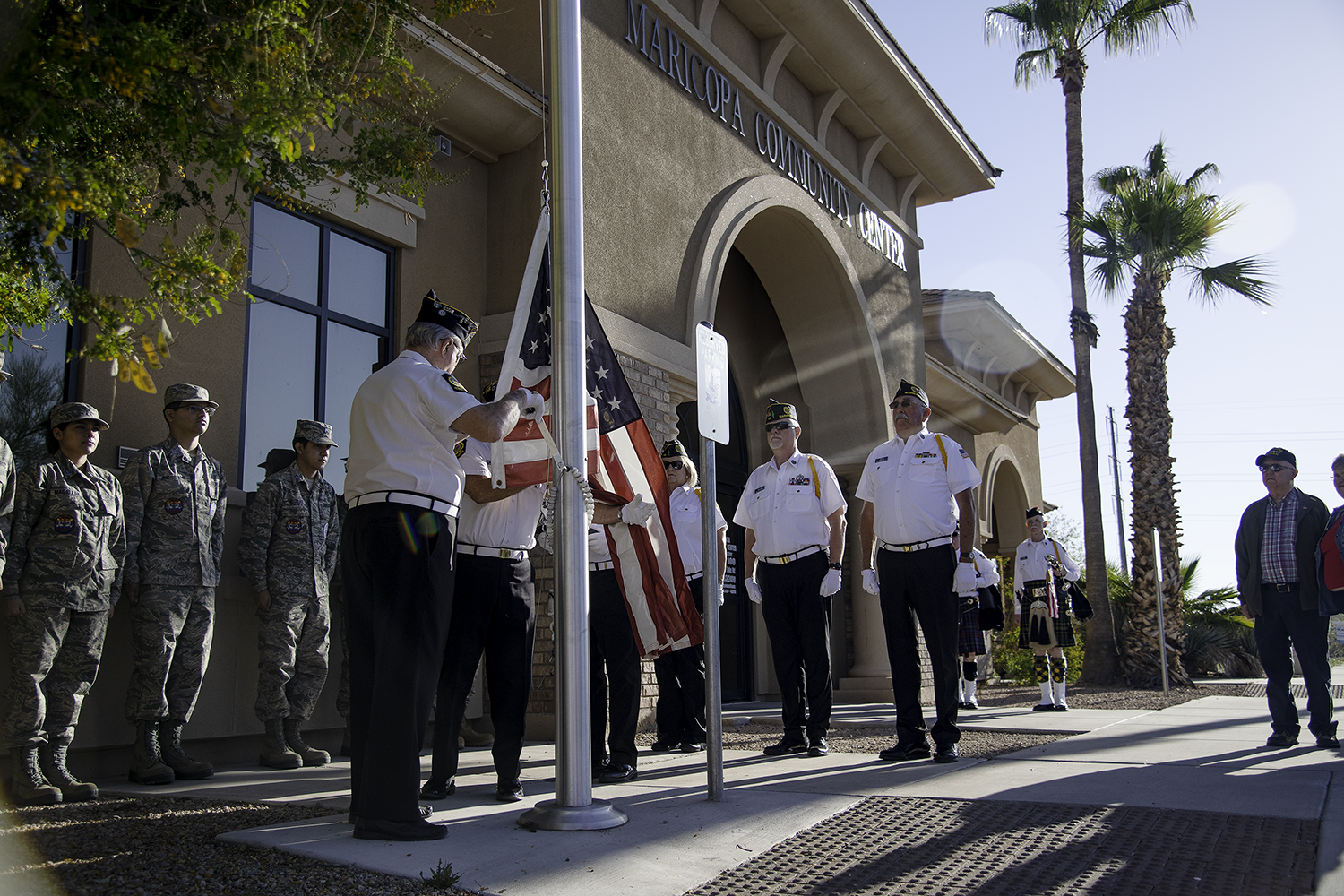
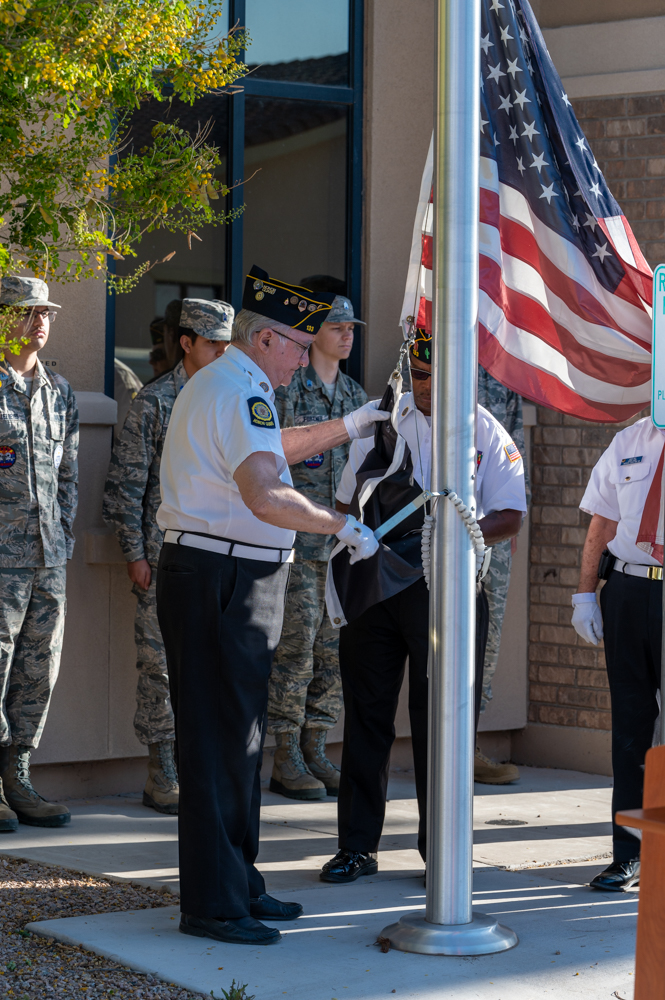
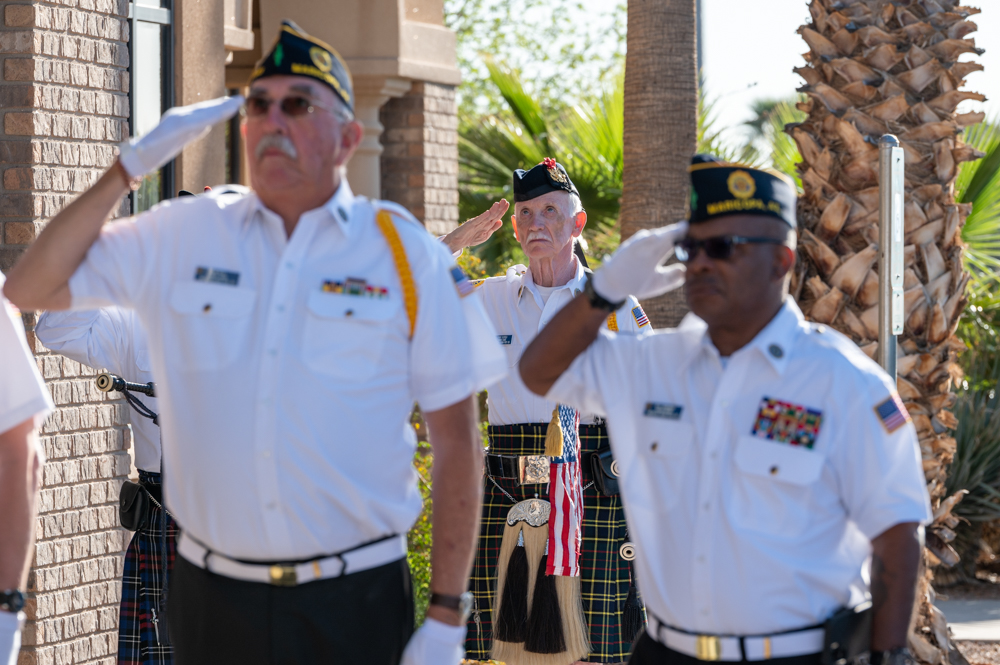
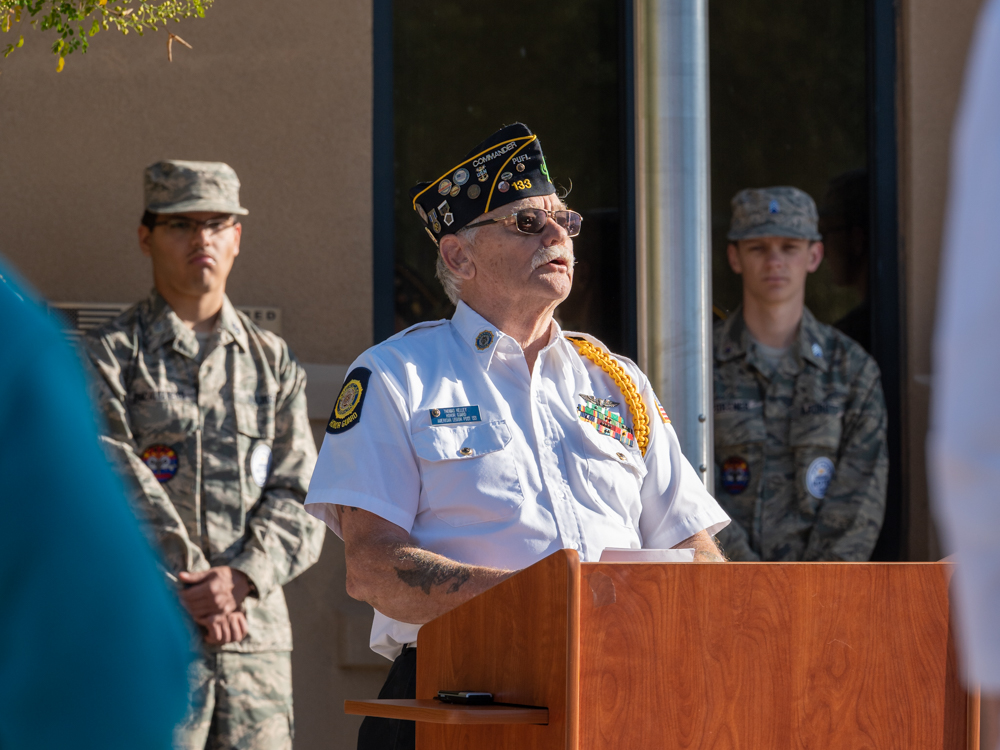
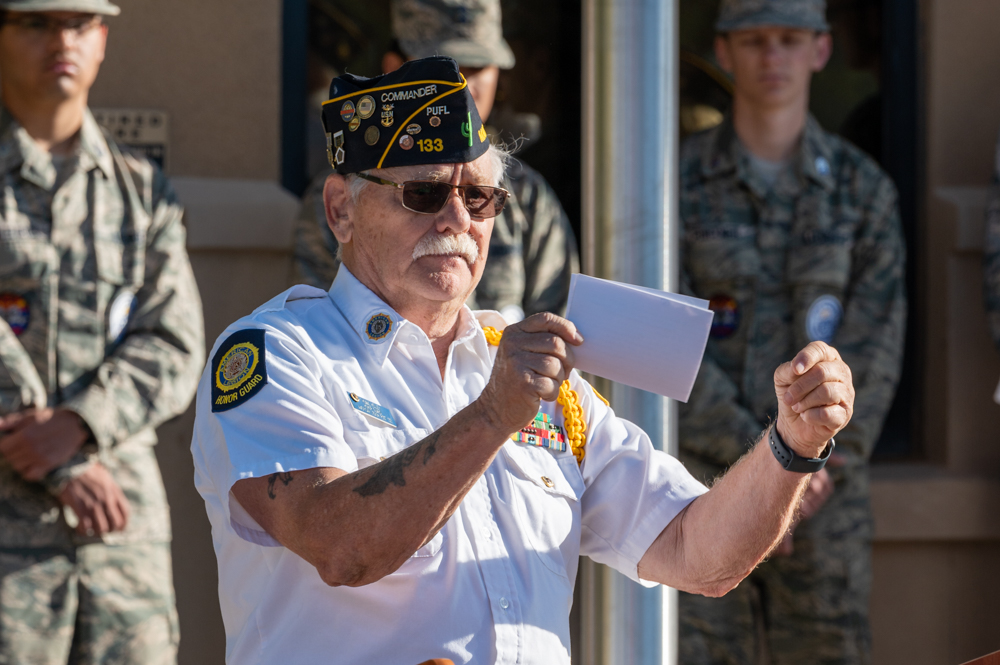
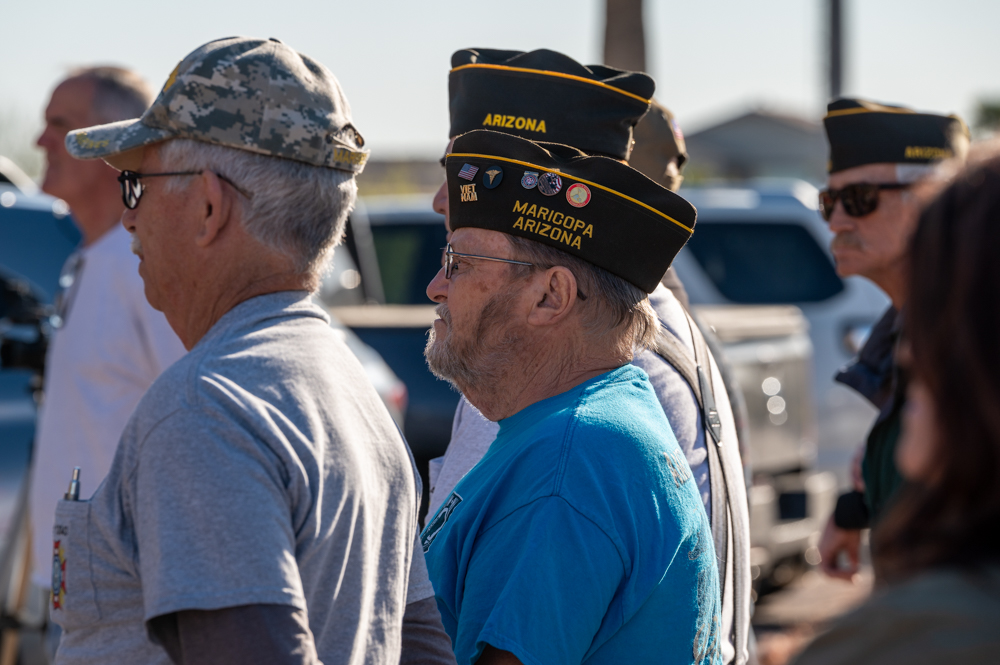

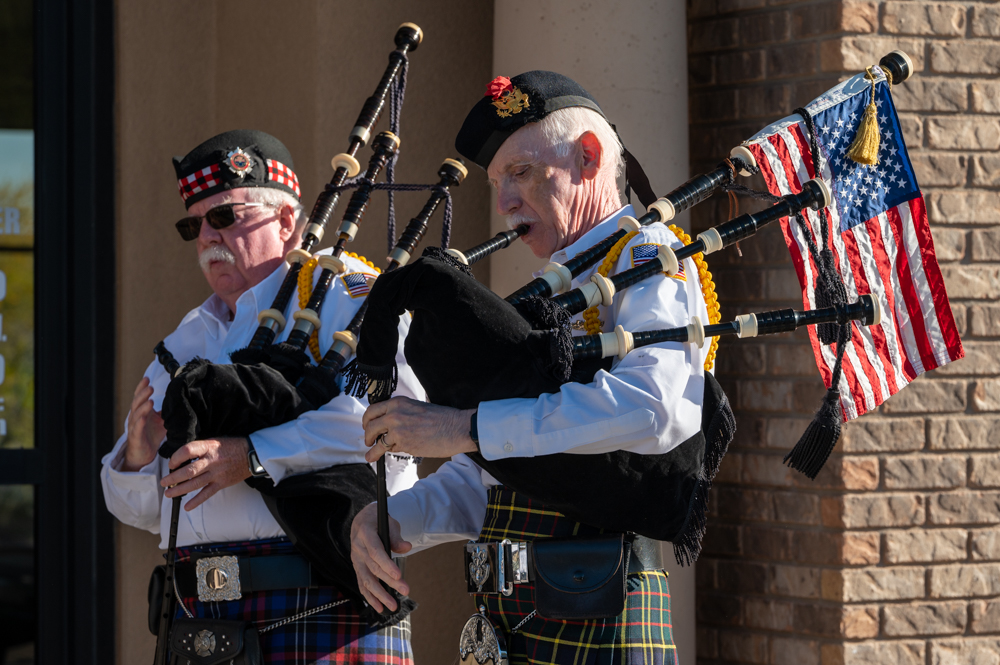

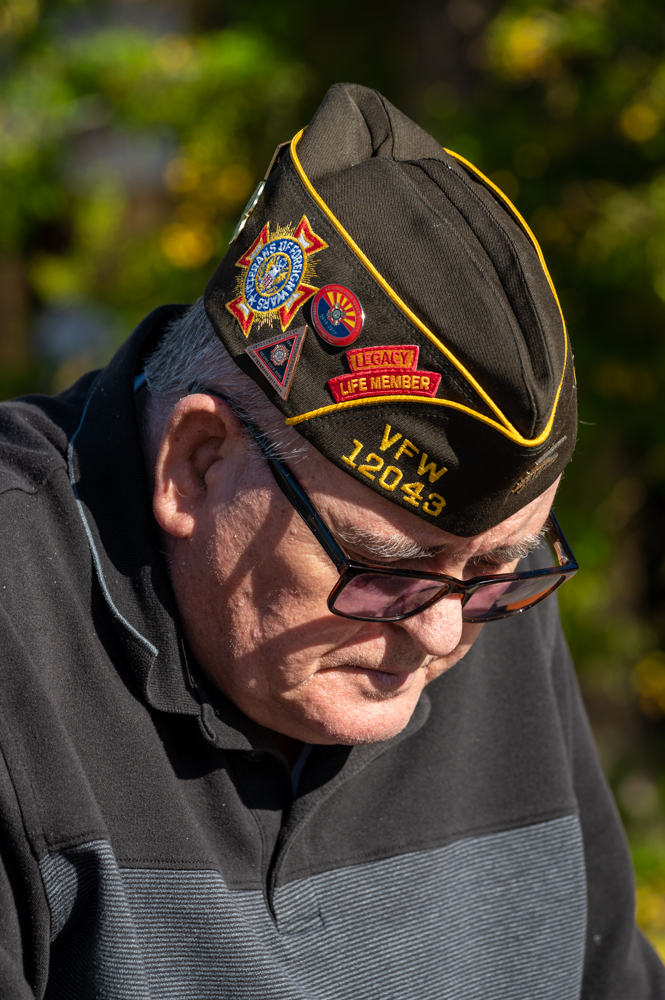
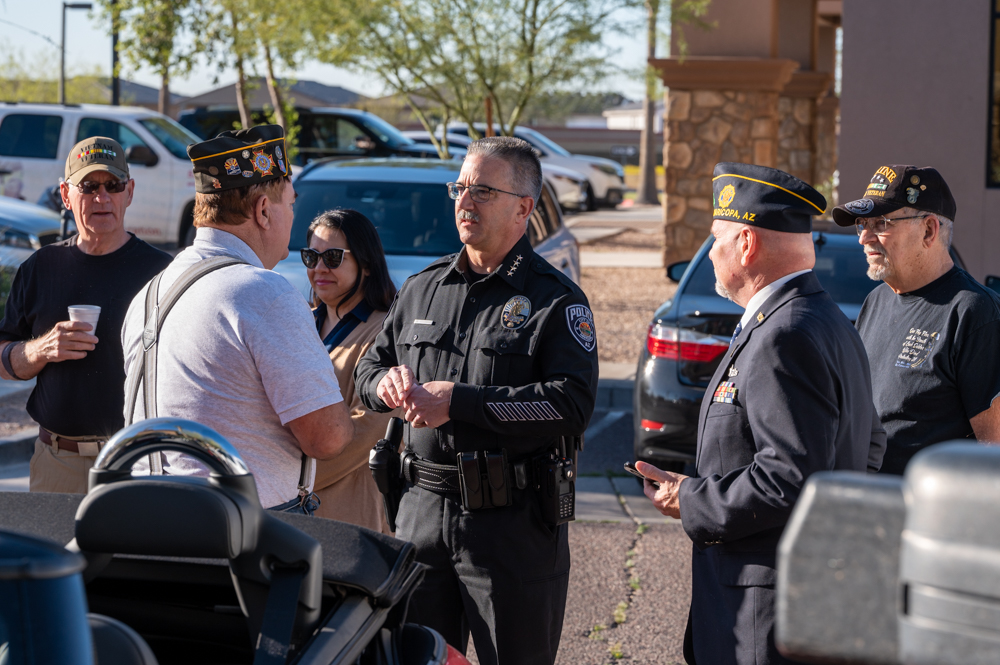

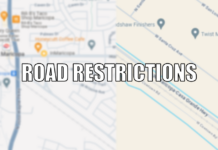

![City gave new manager big low-interest home loan City Manager Ben Bitter speaks during a Chamber of Commerce event at Global Water Resources on April 11, 2024. Bitter discussed the current state of economic development in Maricopa, as well as hinting at lowering property tax rates again. [Monica D. Spencer]](https://www.inmaricopa.com/wp-content/uploads/2024/04/spencer-041124-ben-bitter-chamber-property-taxes-web-218x150.jpg)

![3 things to know about the new city budget Vice Mayor Amber Liermann and Councilmember Eric Goettl review parts of the city's 2024 operational budget with Mayor Nancy Smith on April 24, 2024. [Monica D. Spencer]](https://www.inmaricopa.com/wp-content/uploads/2024/04/spencer-042424-preliminary-budget-meeting-web-218x150.jpg)
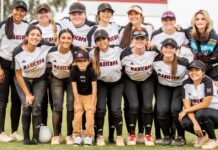

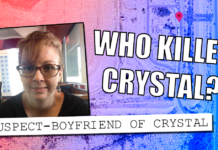


![Alleged car thief released without charges Phoenix police stop a stolen vehicle on April 20, 2024. [Facebook]](https://www.inmaricopa.com/wp-content/uploads/2024/04/IMG_5040-218x150.jpg)




![City gave new manager big low-interest home loan City Manager Ben Bitter speaks during a Chamber of Commerce event at Global Water Resources on April 11, 2024. Bitter discussed the current state of economic development in Maricopa, as well as hinting at lowering property tax rates again. [Monica D. Spencer]](https://www.inmaricopa.com/wp-content/uploads/2024/04/spencer-041124-ben-bitter-chamber-property-taxes-web-100x70.jpg)